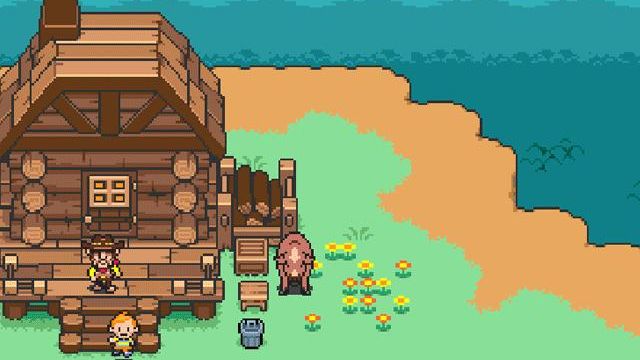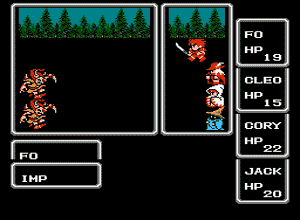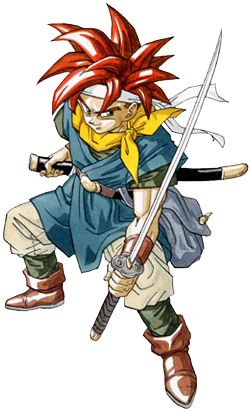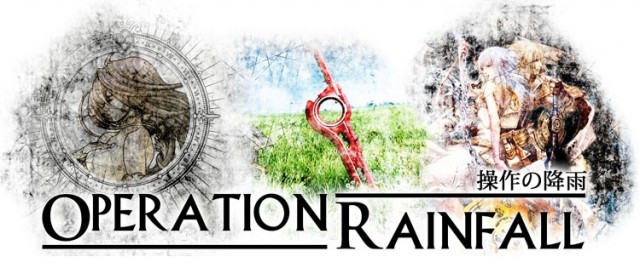 If December could be summed up in one word (or maybe four), it would be a month of “waiting.” It’s the time of year you’ve been waiting for since last December, whether it’s for the festive decorations, the food, the holiday, or indeed the jam-packed release schedule of all the games you’ve been itching to play since E3. No matter how much snow may be falling outside, the warm embrace of your favourite console is simply too good to resist, and when Super Mario 3D Land and The Legend of Zelda: Skyward Sword have been flying off the shelves in recent weeks, who could blame you?
If December could be summed up in one word (or maybe four), it would be a month of “waiting.” It’s the time of year you’ve been waiting for since last December, whether it’s for the festive decorations, the food, the holiday, or indeed the jam-packed release schedule of all the games you’ve been itching to play since E3. No matter how much snow may be falling outside, the warm embrace of your favourite console is simply too good to resist, and when Super Mario 3D Land and The Legend of Zelda: Skyward Sword have been flying off the shelves in recent weeks, who could blame you?
But in amongst December’s flurry of cast-off plastic packaging came a piece of news which caught nearly everyone off guard. No, not Miyamoto’s supposed retirement (although that too was quite a shocker)– I’m talking about something equally unexpected, something that many Nintendo fans had long given up hope of ever happening. I’m talking about the announcement on December 2nd that Xenoblade Chronicles would finally hit US shores in April next year.
Now if you’re a regular reader here at Nintendojo, you may well have been wanting to wring my neck over the last few months because I just haven’t been able to stop talking about how much I love Xenoblade. And I’d forgive you for that, I really would. I can only hope that everything I’ve said about Xenoblade will give you an idea of just how much you need this game in your Wii library.
At the same time though, I think Europeans like myself are entitled to feel just a little smug about this whole situation. We’ve had a long, long history of either missing out on localisations altogether or having to endure entire decades before some games are released over here, and it’s particularly frustrating for someone like me in the UK since, like so many arguments which have surfaced about Xenoblade, those games have already been translated into English. So if you thought playing the waiting game for Xenoblade was tough, prepare to have your patience quotas blown wide open.

Final Fantasy I: the turn that lasted thirteen years…
One of the most famous casualties of the waiting game is the Final Fantasy series. As many of you will know, the original Final Fantasy was one of the most successful games on NES. Before it crossed over to North America in 1990, it even received an upgraded port for the MSX, an early Microsoft console which had been the go-to machine for game developers before Nintendo’s Famicom arrived on the scene. But while the US went on to enjoy both Final Fantasy II and III (or IV and VI if you’re using the proper order), Europe was left two consoles short of a Phoenix Down. It wasn’t until 1997 that Europe finally got its hands on this mythic franchise, but even then it wasn’t with any thanks to Nintendo. 1997 was, of course, the year Final Fantasy VII was released, and a whole new swathe of Final Fantasy fans were born.
Now while nearly every NES and SNES Final Fantasy was subsequently ported over to GBA across all regions, Sony once again pipped Nintendo to the post in this respect for Europeans by packaging I and II together in 2003’s Final Fantasy Origins, and IV and V in Final Fantasy Anthology a year earlier. VI was even lucky enough to get its own separate release in Europe the same year in 2002 (just three months before Final Fantasy X was released in PAL regions). This was the first time these games had been legitimately released in Europe, and many of us cheered and cried with joy. It might have taken thirteen, eleven and eight years respectively for I, IV and VI to arrive, but at long last Europe could finally see what the US had been raving about for over a decade.
 Of course, the main reason why many Europeans feel so indebted to Sony for bringing the Final Fantasy series over to this side of the pond is due to Square and Nintendo’s great falling out at the end of the SNES era. As Nintendo 64 continued to support the rather most costly cartridge format, Square eventually decided that their ideas (and their finances) would be much better suited to a life on PlayStation. So when Square announced that Final Fantasy VII would be a PlayStation exclusive, it brought an abrupt end to their ten year relationship.
Of course, the main reason why many Europeans feel so indebted to Sony for bringing the Final Fantasy series over to this side of the pond is due to Square and Nintendo’s great falling out at the end of the SNES era. As Nintendo 64 continued to support the rather most costly cartridge format, Square eventually decided that their ideas (and their finances) would be much better suited to a life on PlayStation. So when Square announced that Final Fantasy VII would be a PlayStation exclusive, it brought an abrupt end to their ten year relationship.
But the waiting game still wasn’t over. Despite Square’s newfound love for PlayStation, it still didn’t stop them from holding back yet another one of their most beloved titles– Chrono Trigger. Originally released for SNES in 1995 in both Japan and the US, Europe missed out not only once, but twice when Sony decided to keep Final Fantasy Chronicles (a compilation which saw Chrono Trigger bundled together with Final Fantasy IV) as a US exclusive. It wasn’t until the DS port surfaced fourteen years later in 2009 that Europeans could finally experience one the best RPGs of all time.
As a side note, Chrono Trigger‘s much-loved PlayStation sequel, Chrono Cross, is still floundering in the Atlantic somewhere.
But where would a discussion about lost localisations be without mentioning Mother 3? Long before Operation Rainfall kicked off, Mother 3 was (and to some extent still is) the poster child of Nintendo’s increasing reluctance to localise Japan-only games overseas. Even though its SNES prequel, Earthbound, was released in 1995 to great critical acclaim in the US, Nintendo hasn’t been so obliging with a US release since Mother 3 came to Japanese GBAs in 2006. Personally, I have no idea what all the fuss is about as Europe didn’t even get Earthbound.
Naturally, many people have asked why various games never get released in one region or another, but it often comes down to the same, disappointing answer: money– or rather the lack of it. When MTV Multiplayer asked Reggie Fils-Aime about a US release date for Mother 3 back in 2009, he had the following to say:
“Maybe I’m going to burst some people’s bubbles, but just because I’m the president of NOA doesn’t mean that every game that I love gets published in our territory. We run a business. And so, in order for a title to be published, the development, localization, launch, volume, all needs to make economic sense.”
It was the same story with Square a decade earlier– putting Europe aside for the moment, one of the biggest reasons why only half of the Nintendo Final Fantasy games ever made it to the US was because of the cost of localisation. Final Fantasy II, for example, was planned to have a US release in 1990, but the project ended up getting cancelled due to the extra development time needed to make an English translation, as well as the imminent release of SNES and Final Fantasy IV in Japan.
Appeal is another factor which stopped Final Fantasy V from being released outside of Japan as well. Ted Woolsey, Square translator extraordinaire, has said on numerous occasions that Square felt that the game was too complicated and not mainstream enough to warrant a US release. In a 1994 interview with Super Play Magazine, he said that while “we’re sure [FFV] is a great title it hasn’t been a hit with too many people in out-focus groups”. Although more experienced gamers loved the complex character building, “it [was] just not accessible enough to the average gamer,” and he echoed those concerns in another more recent interview with Player One Podcast:
“I think one of my favorite games was Final Fantasy V, which I had almost all translated, but which they opted not to ship because they didn’t feel the US market was ready for a second flagship RPG. […] They felt in Tokyo that they needed something else to get people trained up on that style of gaming.”

Now this probably all sounds strangely familiar if you’ve been following the progress of Operation Rainfall this past year. With Reggie talking about how Nintendo would be “watching very closely what happens in Europe” with Xenoblade back in June, bringing in phrases like “business opportunities” and “positive consumer uptake,” it seems like little has changed in the intervening years. So does this mean that Nintendo has had a change of heart now that it’s announced Xenoblade‘s US release? Probably not in the grand scheme of things. The cost and likely success of bringing a game to a different region is still likely to weigh heavily on any decision Nintendo make about localisation in the future, no matter how much fuss fans make or how stubborn their decision may appear to the masses. We might not like it, but you can’t escape the fact that Nintendo is still a business.
Of course, I don’t profess to know why Nintendo thought Europe was a more viable market for these three Operation Rainfall titles than the US– especially if history is anything to go by– but while this might paint a rather bleak picture for The Last Story and Pandora’s Tower, I do still think there’s some hope for these two games. Back in the dark days of the early ’90s, Europeans simply didn’t have the facilities to engage with Nintendo in the same way Operation Rainfall has done this year. Organised online movements were three words we would never have put together back then, and the fact that such vast quantites of North American fans are communicating with Nintendo so passionatley is at least a step in the right direction. We just had to sit there and take the rejection. So have hope, Operation Rainfall. If Xenoblade has made it in this current economic climate, then there’s every chance that you may still get a full hattrick by the end of next year.
If all else fails though, just think that in ten years time when Nintendo’s brand new console is rebooting a generation of “age-old classics,” you might just strike lucky and get an ported version in 2020!




 ShareThis
ShareThis







Okay, so why is it that I come back to Nintendojo after stepping away for a few months and all of a sudden Nintendojo is tackling everything I care about (ie Solatorobo). First of all, Mother 3 = Excellence squared. I love LOVE LOve loVE LoVe lOvE LOOOOOOOVE this game, even though Earthbound wasn’t quite my cuppa tea. It really is a shame Mother 3 isn’t going to show up AT ALL in English by any legal means. I mean, maybe someone should ask Reggie again now that the eShop is an option, (and we know it has the ability to emulate GBA now).
We put it all up because we saw that you disappeared on us and we wanted you back :'(
Dissapeared?…. Or forgot the strange and nebulous Word Press password and only remembered it by some strange epiphany 2 days ago while playing Valkyria Chronicles?
I’m pretty sure you can guess which actually happened.
Wait wait wait wait wait WAIT!
…
Something seems off about that screenshot… How the heck is Matthew at Alec’s house? He never made it there, since … heheh… Well I’d better not spoil it…